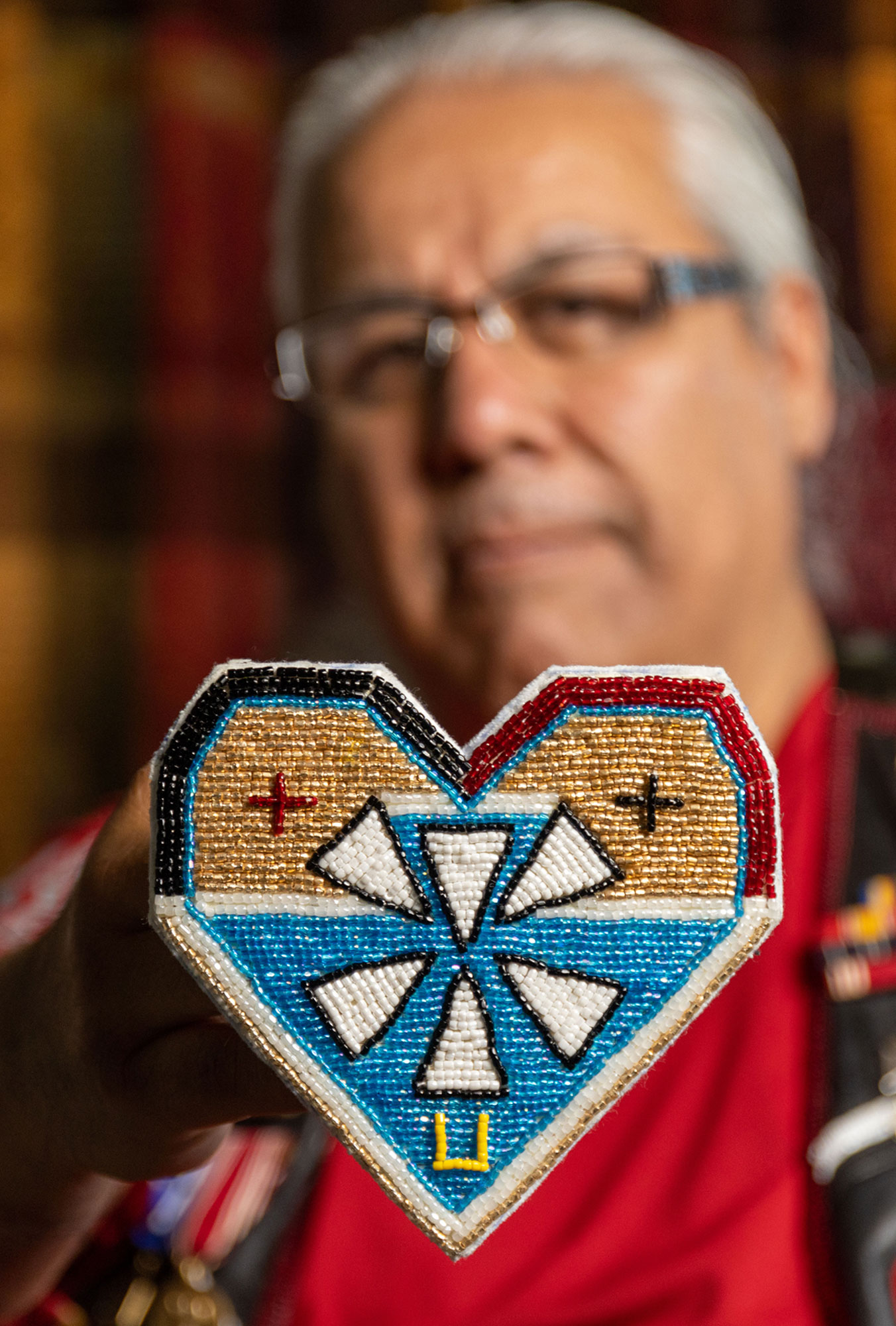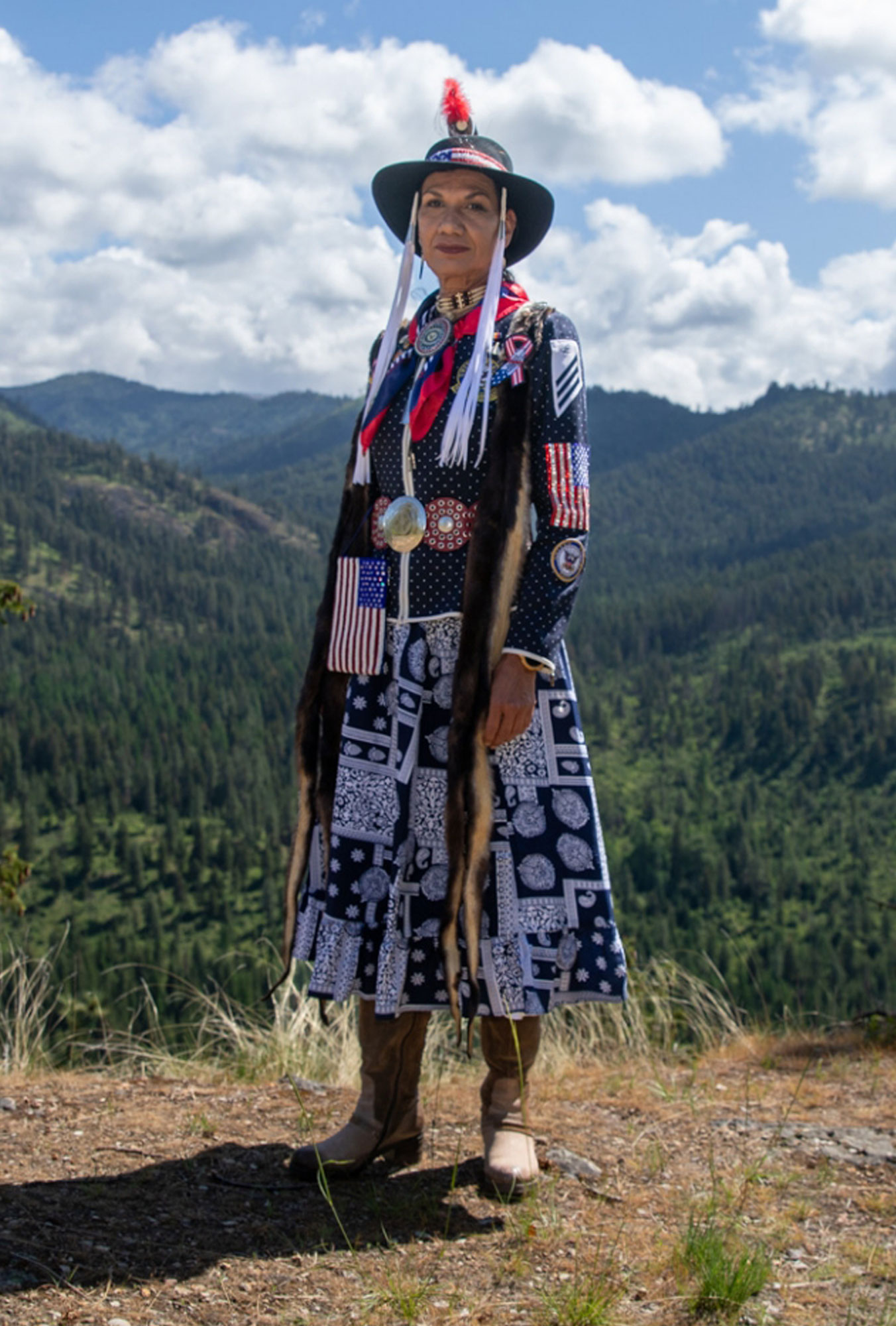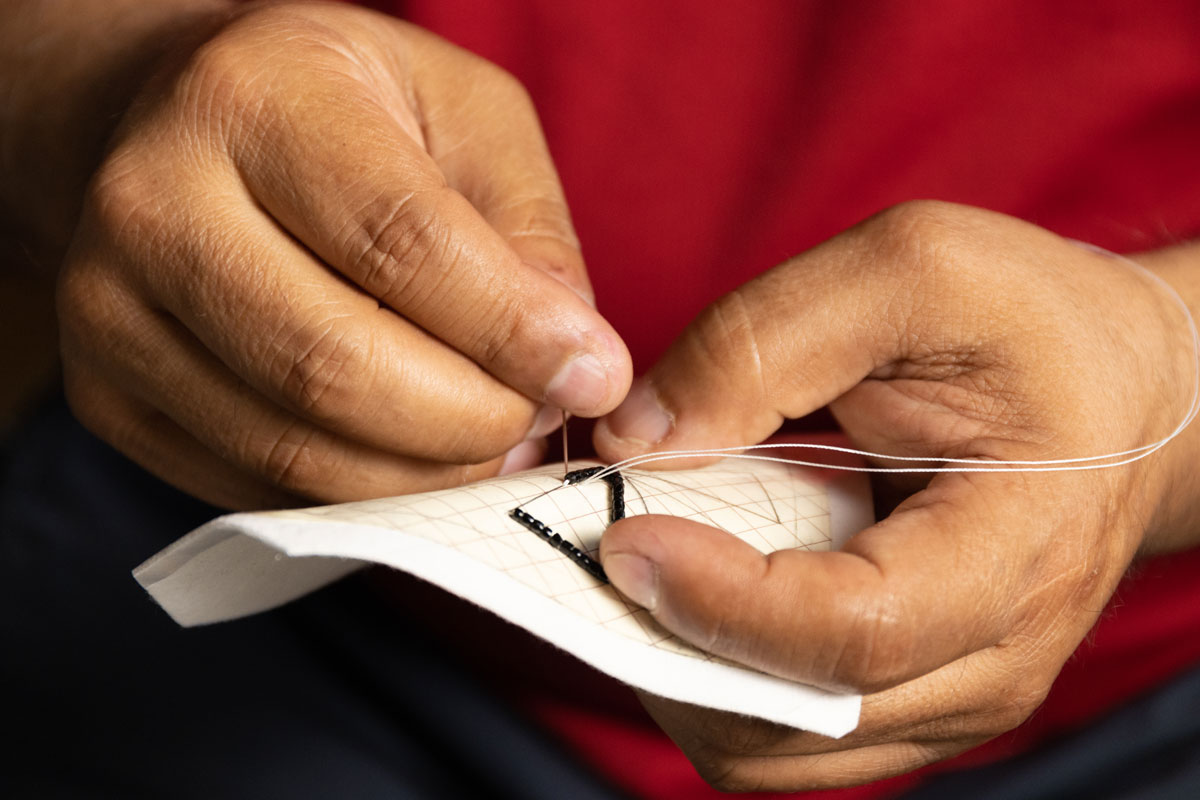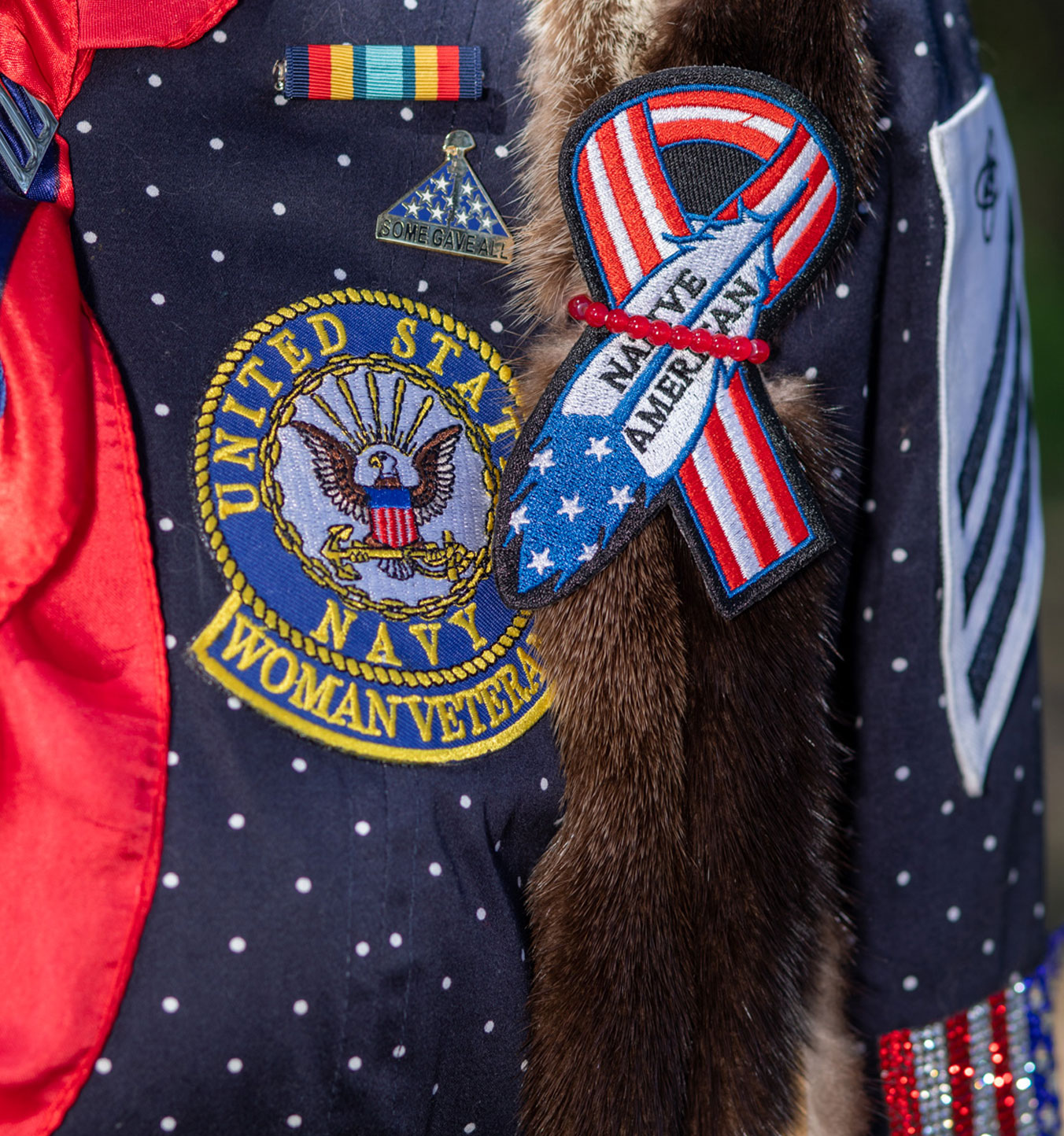PROTECTING OUR MENTAL HEALTH
“Native veterans
are not alone.”
Native people have a legacy of military service. In some families, service spans generations as far back as the Revolutionary War. We join to defend our home and the land, and to create good lives. For many of us, service is a source of honor and pride.
‘Life is transformation’
U.S. Navy veteran Stephanie Stoops, a member of the Kalispel Tribe of Indians, has survived depression and the loss of her son, a veteran who died by suicide. Stephanie shared her story with artist Roger Fernandes, from the Lower Elwha Klallam Tribe, who used art to relate her experiences to traditional stories. “Ask for help,” Roger says, “and know that you will transform.”
Getting mental-health support is a sign of our strength.
Some veterans also experience mental health issues and thoughts about suicide. Culturally appropriate support is available for Native vets in Washington — whether that means talking with an elder, starting mental-health counseling online or in-person, or learning about housing options. Many find healing in cultural traditions, like making art.
Suicidal thoughts can happen to anyone, including those who’ve served. It’s a sign of strength to get the support you need – for yourself or your relatives.
Beading is healing
Coeur d’Alene Tribe member and veteran Mark Ramos does beadwork to support his mental health. Photographer Jeff Ferguson, a member of the Spokane Tribe of Indians, created this video about Mark’s connection to culture and the piece he created to honor his fellow veterans.
Culture and connection, along with counseling, are healing.
To support your mental health, you can:
- Get mental-health counseling. Consider finding a therapist who understands Native cultures. If services are located far from where you live, consider Web-based counseling.
- Connect with other veterans, whether it’s online or in person. Many veterans share similar experiences during and after service. You may find comfort in connections with fellow veterans. Knowing you’re not alone can help mental health symptoms, including thoughts of suicide.
- Take part in spiritual or and cultural practices such as sweats, Tribal Journeys, or Jump Dances. Traditional Indian medicine like herbal medicine, smudging, and healing or sweat lodge ceremonies can help veterans suffering from service-related physical and mental injuries.
- Participate in or attend ceremonies honoring service members. Traditions like coming-home ceremonies are a source of strength, connection and support. Some Native vets cope better with anger, depression and post-traumatic stress when they take part in rituals connected to war, service and healing.
- Connect with your tribe and culture, whether it’s through art, making, dancing, food, storytelling or other traditions. Connect with elders, traditional-language speakers and cultural specialists. Consider finding ways to pass your knowledge and customs to the next generations , which can be healing, too.
- Build positive connections with friends and relatives.

Other ways to ask for help.
Support vets by checking in and joining in.
Veterans can find it hard to feel a sense of belonging back home. Checking in with them (in person, by text, by phone) can help them feel less isolated. So can organizing and joining them in activities. Other ways to help:
- Provide safe spaces for servicemembers and veterans to talk about their mental health and experiences. Listen carefully and without judgment.
- Talk about firearms and ammunition safety, including secure storage . Plan ahead to handle firearms access if someone in your life experiences a mental health crisis. Those conversations are best to have long before a crisis.
- Talk about safe firearms storage, and plan ahead in case someone in your life experiences a mental health crisis. Those conversations are best to have long before a crisis.
- Join or organize ceremonies to recognize service members’ sacrifice and to support them as they transition back to everyday life. Some tribes hold going-away and coming-home ceremonies for service members, including honoring ceremonies and victory dances. Find ways to honor veterans for their service as part of larger cultural events.
- Cultural practices like smudging, storytelling, powwows, music and dancing can also be good sources of support for Native vets.

Learn the signs of suicide and how to help.
You can’t always tell when people are thinking about suicide. But most people show some sign. Learn the warning signs to watch for in others or yourself, so you can get support from people trained to help.

Ask, listen, and connect people with support.
When a friend or family member is struggling, we can help them get the help they need.

